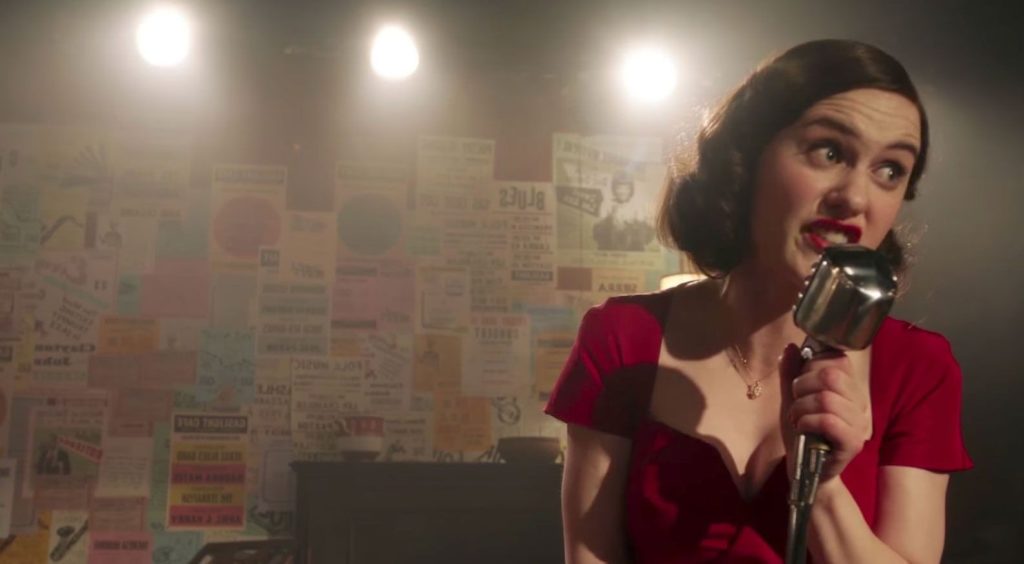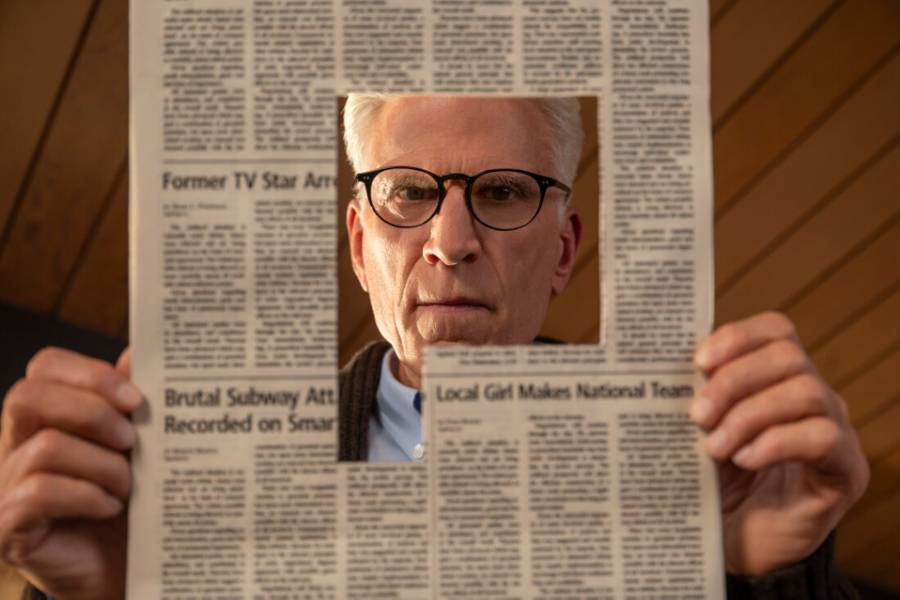The second season of “The Marvelous Mrs. Maisel” is even more marvelous than its first season but this time at the expense of Mrs. Maisel.
In the first season, creator and showrunner Amy Sherman-Palladino invited viewers into the world of 1950s New York City, where Jewish housewife Miriam “Midge” Maisel (Rachel Brosnahan) has a perfect life by her standards: two kids, a working husband and an apartment on the Upper West Side. However, this is all ruined when her husband Joel (Michael Zegen) cheats on and leaves her. The first season explores the death of Midge’s marriage along with the birth of her stand-up comedy career – a career that is nearly ruined by her takedown of a famous comedian during a set in the season finale.
The second season picks right up where the first one leaves off, and fortunately for viewers, both Midge and the show return with more energy, grace and style than before. This season follows Midge as she leaves her city and heads to Paris and the Catskill Mountains on a comedy tour with her crass manager, Susie (Alex Borstein). She both succeeds and bombs along the way.
Although season two loses some of the first season’s stakes, it retains the magic. There are many moments in season two when the conflicts in Midge’s life have no significant repercussions. This time, Midge faces an increase in 1950s showbiz sexism in the form of male comedians and club owners who patronize her at her gigs. In response, Midge charmingly and hilariously calls them out during her stand-up sets and, as quickly as it appeared, the conflict is dropped.
There’s something refreshing about a drama series in which conflict isn’t the main priority and viewers can simply hang out with the characters like it’s a comedy. The distinct and likable ensemble of characters in “The Marvelous Mrs. Maisel” could easily lend themselves to a sitcom format. However, it is a drama, and the show is hurt by the lack of significant progression in Midge’s story. This season rids itself of the suspenseful momentum it had in season one. The show simultaneously moves quickly from one glamorous 1950s set piece to the next, but it lacks a reasonable pace with Midge’s story – where it counts. For most of the season, it feels like the conflict in the lives of the supporting characters has more substance than the conflicts in Midge’s.
The move out of New York City and to Paris and the Catskills is a golden opportunity to explore even more ’50s aesthetics and to help the core cast beyond their lives in New York, particularly the lives of Midge’s traditional parents, Rose (Marin Hinkle) and Abe (Tony Shalhoub). Rose and Abe — who are delightful, if a bit one-dimensional, in the first season — both go through compelling midlife crises in Paris and the Catskills respectively, a situation that helps to flesh out their characters. Rose, who, in the previous season, is defined only by her overinvestment in Midge’s life, shines when the show explores how she deals with not feeling needed by her family.
However, Joel is the most newly developed character. In an attempt to atone for leaving Midge, Joel takes control of his father’s garment business and quietly pines for and supports Midge while weighing his mistakes. The nuance given to his character this season fixes his contrived unlikability, which stood out from the almost flawless first season.
The idealized view of the 1950s works to the show’s advantage on a production level. Women with flawlessly styled hair populate pastel hair salons and garish department stores in a dreamlike aesthetic. The show’s soundtrack is full of songs strictly from the 50s or before, and it complements this aesthetic. Characters and extras alike in “The Marvelous Mrs. Maisel” move through scenes in a quick, strategic and whimsical fashion. The large dance number in episode six, “Let’s Face the Music and Dance,” only feels marginally more like a musical than other scenes do.Although the development of the supporting characters expands the already enticing world of the show, another factor takes priority over the actual hook of the show: Midge and Susie working together to build Midge’s new life and career. “The Marvelous Mrs. Maisel” is at its strongest when Midge is onstage crafting witty jokes out of her tragedy, and luckily those moments in the second season are rich enough to overshadow the fact that the momentum of her story is gone.














